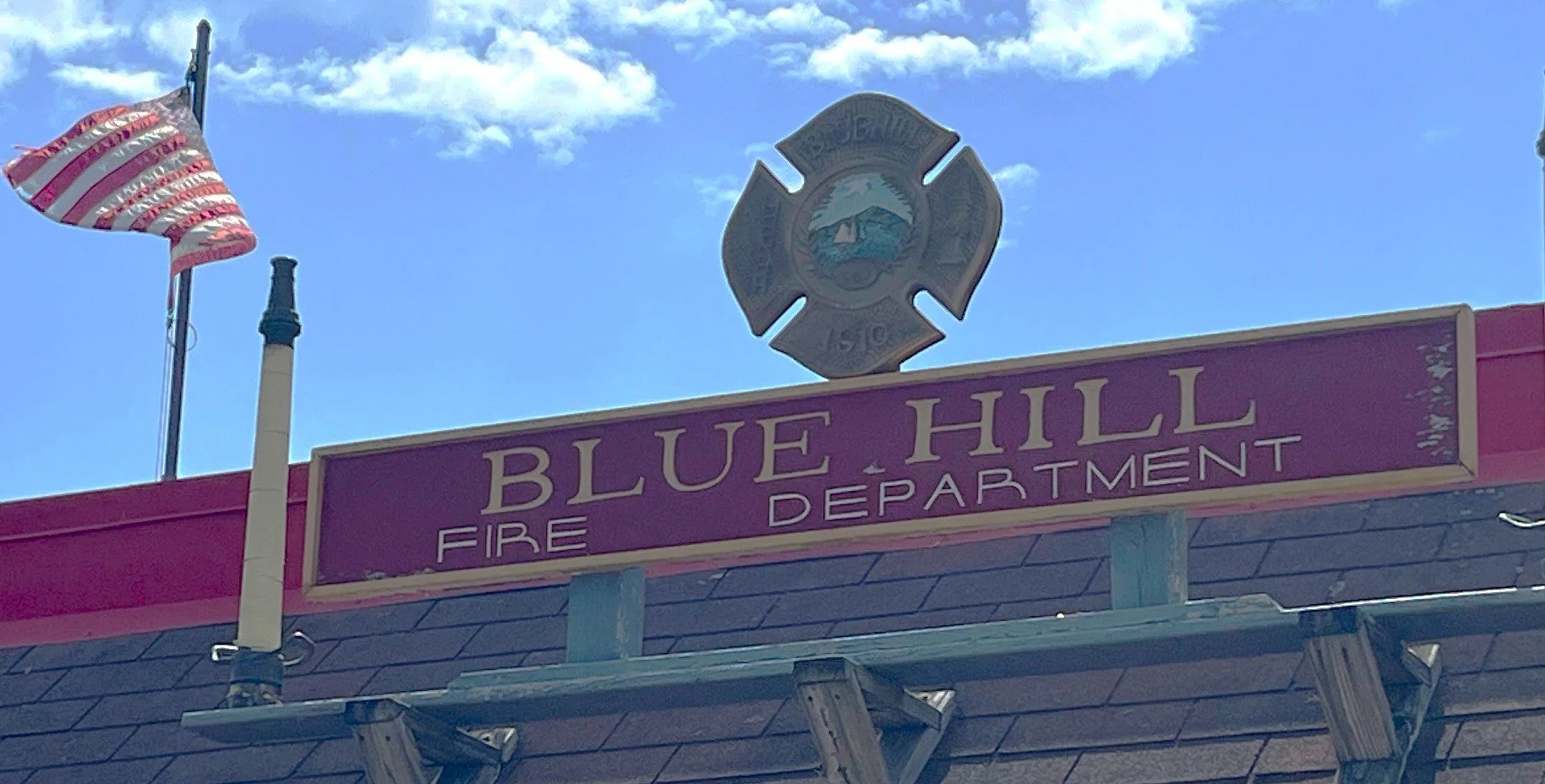Rescue 10: On volunteering at the fire department
By Ray Salvatore Jennings
The first thing I noticed was the smell: a dense, lived-in mix of canvas and rubber; ash and diesel; sweat and grease. The fire trucks gleamed like chrome giants, polished to parade condition, but no shine could erase the lingering scent of combustion and burden. They smelled like they remembered where they'd been.
There hasn’t been formal training yet—no drills, no certifications. That’s all coming. For now, I’ve been watching, listening, learning. Trying to absorb the code, the cadence, the logic that governs this place. There’s a choreography to it: tools with names like Halligan and pike pole. Compartments that open with advent-calendar precision. Protocols that must be memorized not just to pass a test, but to save a life. Everything in its place. Everything with a purpose.
What surprised me most wasn’t how few volunteers there were, but how many. In this town, people don’t just wave flags or post hashtags. They show up. They sweat. They serve. The firehouse lineup spans generations: teenagers still weighing their place in the world; retirees who could have put their boots up but didn’t; and everyone in between—welders, mechanics, nurses, night-shift workers. No boasts. Everyone brings something. Everyone carries weight.
The first fire I responded to came on a hot summer afternoon. It was a single-story home, burning heavily by the time we arrived. Thick gray smoke poured from beneath the eaves, rushing out in dense, pressurized waves, as if the house itself were exhaling through every crack in its frame.
What I saw wasn’t panic. It was a kind of kinetic calm. Trucks from neighboring towns pulled up in steady rhythm. Crews moved with practiced ease, snapping on masks, checking gauges, laying out hose lines that pulsed like arteries along the gravel driveway. One team entered. Another stood ready to take their place. Each movement was composed. Even as the roof threatened to cave, there was humor—not the gallows kind, but something grounded. A shared language visible from behind face shields, traded over radios. Self-deprecating. Understated. Calming.
I joined the department because I wanted to continue my work in public service closer to home. To understand service not as policy or posture, but as presence. I’ve spent a life in foreign assistance overseas, circling the edges of catastrophe in fractured societies where daily life holds together by the thinnest threads of will and habit. And what I’ve learned is that the stories that endure and change lives rarely involve grand speeches.
They involve a mother walking miles for clean water; a nurse moving tent to tent in a refugee camp, tending wounds that medicine alone can’t heal; a local elder coordinating food distributions under curfew, knowing each delivery carries risk; a teenager using his phone—his only tool—to reunite families scattered by violence. Quiet acts of courage that seek no recognition. Just survival. Contribution. Dignity. And care.
This firehouse feels familiar in that way. The stakes are different. But the instinct is the same. People step forward because someone has to. Not for glory. Not for credit. But because the pager tone is received, and that means it’s time to go.
The Blue Hill Fire Department, where Jennings recently began volunteering.
Last month, a new rescue truck arrived at the station. Rescue 7, its predecessor, had nearly three decades of service in its rearview. Fire trucks aren’t built for eternity.
There’s a tradition of pushing a new rig into the firehouse by hand—a ritual that dates back to the days of horse-drawn engines. Today, it’s a collective gesture of unity and transition, honoring what came before.
Fifteen of us gathered at the bumper. No orders. No speeches. Just a collective shoulder to the metal. Then Rescue 10 sat quietly in its place—gleaming, heavy, ready.
We lingered. Not quite celebrating, not quite leaving. Just standing in the half-light, thinking about where we’ll be when the next truck arrives, and who’ll be there then, leaning in.
It's just one example of what public service is—less slogan than reflex. A kind of civic muscle memory that kicks in when something needs doing. It's how communities keep going through storms and shortages, wildfires and wars, uncertainty and upheaval. Especially when it’s hard, and when no one is looking. Always essential - and unmistakable in its absence.
—Jennings is a writer based in East Blue Hill and founder of Durable Good, where he shares essays on quiet heroism, public service, and the work that holds communities together. He originally published this piece for Durable Good in July. Since then, he has completed his first certification in emergency vehicle operations.


